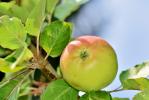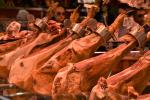H2020 DRALOD Project: Renewable energy-based drying technology for cost-effective recovery of food processing industry waste
- Type Project
- Status Filled
- Execution 2018 -2021
- Assigned Budget 1.906.892,00 €
- Scope Europeo
- Main source of financing Horizon 2020
- Project website DRALOD
Design, implementation, and commissioning of the DRALOD pilot plant: a low-temperature drying plant based on renewable energy. A biomass heating system is optimized to operate as an auxiliary heat source in the plant, powered by solar air heating. The pilot plant is located in Chiloeches (Spain), a strategic location near large food and beverage processing plants. Its operating temperature is 75°C. It uses a co-current rotary dryer with a double-pass trommel.
The pilot plant operates for a nine-week demonstration period. It is being demonstrated for the drying of various materials, including spent brewer's grain (BSG), orange pulp, beet pulp, and olive oil by-products. The combination of a 2,500 m2 solar installation with a 1 MW boiler has been shown to provide an adequate solar/biomass ratio. This combination allows the percentage of solar input to the system to exceed 50%, enabling significant savings in biomass consumption. The solar system meets production and thermal gap expectations, presenting it as an interesting alternative for the implementation of this type of solar system in low-temperature air-entrained dryers. The temperature of 75°C in the low-temperature drying process allows for efficient drying without altering the composition of certain products.
A heat recovery unit (HRU) has been designed and implemented as a research-scale prototype. It consists of a scrubber condensing unit that recovers heat from the exhaust air at the dryer outlet and a heat pump system to upgrade the heat from solar air heating to a usable temperature. It was first tested in a laboratory environment in Böras, Sweden. It was then installed in the DRALOD pilot plant and tested in a real-life industrial environment. Tests show good energy efficiency. The HRU can recover approximately 20 kW of heat from the drying system. The recovered heat is used as a heat source for the heat pump. A full-scale system is approximately 1 MW. Based on the knowledge gained from these research and development activities, specifications for a 1 MW full-scale HRU have been specified, which will be operational in a DRALOD pilot plant.
A cost-benefit analysis of the DRALOD pilot plant based on computational models for determining optimal operating conditions.
3 scientific publications in peer-reviewed journals.
Participation in 3 scientific conferences: 6th Central European Biomass Conference (CEBC 2020) Graz-Austria, 29th European Biomass Conference and Exhibition (EUBCE 2020), 23rd Conference on Process Integration, Modeling and Optimization for Energy Service and Pollution Abatement (PRES'20) online.
Participation in industrial exhibitions: A poster presenting the DRALOD project was displayed at the ÖKOTHERM trade fair at Agritechnica 2019, the world's leading trade fair for agricultural machinery, held in Hanover.
Contributions are being accepted for two additional scientific conferences, which have been postponed due to the COVID-19 pandemic and are expected to take place in 2022.
Creation of dissemination tools, including the website www.dralod.eu, which is regularly updated with news on the project's progress.
THE PROBLEM BEING ADDRESSED
The EU27 generates 90 million tons of food waste annually, which represents a significant environmental problem. Experts have highlighted the need to develop strategies for the recovery and reuse of food waste to produce higher-value, marketable products, leading to greater adoption of circular economy strategies by the food processing sector.
This project identifies an excellent business opportunity to promote the recovery and reuse of certain waste products from the food and beverage processing industry, characterized by: - A high water content (>80%), which has traditionally been a barrier to reuse, as this type of waste undergoes very rapid fermentation and degradation, making it extremely inefficient to transport and store. - Containing high-value nutritional ingredients, widely validated by the scientific community as rich in functional biocompounds, in demand by the nutraceutical and pharmaceutical industries.
WHY IS IT IMPORTANT FOR SOCIETY? Our process offers an environmentally friendly path for the valorization of food processing waste, saving CO2 emissions into the atmosphere compared to a natural gas-powered drying system. Drying waste with high water content brings additional benefits related to climate change, from the perspective of reducing the volume of road transport by reducing the product mass by an average of 65% after drying. Furthermore, DRALOD will also have a significant beneficial impact by allowing the reuse of food processing waste as a valorized product for animal feed and/or functional ingredients for the nutritional and pharmaceutical industries. This project can generate the following benefits for society: - Contribute to protecting society against the adverse effects of global warming by helping to address the challenge of switching from air drying processes to clean energy and reducing the volume of road shipments related to waste management in food processing. - Contribute to job creation in emerging sectors such as waste recovery, as well as in established sectors such as renewable energy, particularly the solar and biomass industrial segments. - Contribute to ecosystem preservation by providing alternative methods to replace landfills.
GENERAL PROJECT OBJECTIVES The main technical objectives of this project are: - To design, implement and validate an energy recovery system optimized for the operating conditions of the DRALOD plant. - To implement a biomass heating system with high flexibility in terms of both fuel type/fuel quality and operation mode that allows low operating costs as an auxiliary heat source. - To design, implement and validate an own intelligent control unit for a combined solar-biomass drying plant based on the thermodynamic simulation of a multi-domain dynamic system. - To design the DRAOD drying plant as well as the integration of these subsystems with the drying tunnel and auxiliary systems. - To start up a pilot plant with a capacity of 35,000 tons of waste/year with a water content of >80% to <15% and run a demonstrator to evaluate the plant performance from a financial, operational and environmental perspective.
The EU27 generates 90 million tons of food waste annually, 39% of which is generated in manufacturing processes. The food processing industry urgently needs sustainable solutions for waste recovery and reuse.
Our proposal: DRALOD, a disruptive and replicable drying process, 100% environmentally friendly and extremely profitable:
- Environmentally: DRALOD uses only renewable energy to enable the conversion of plant-based waste into high-value functional ingredients, as required by the nutraceutical and pharmaceutical industries.
- Profitability: The DRALOD drying plant has a payback period of less than 6 years for an average plant with a capacity of 35,000 tons/year.
Our assets:
- Technological background of the consortium: The coordinator (PERNIA) has experience in solar drying plants and holds licensing rights to a leading solar heating technology. OKOTHERM has specialized in the development and manufacture of innovative biomass heating systems since 1995, while RTDP DFBZ and RISE provide first-class expertise in the implementation of energy recovery systems and intelligent control units for the DRALOD combined solar biomass drying system.
- Industry-oriented vision: PERNIA's turnover exceeded €2.2 million in 2017, with a 32% increase in net profit compared to 2016. It operates in the solar drying sector for the recovery of BSG, demonstrating significant potential.
Target market: The volume of high-water waste generated from the processing of plant-based foods represents an estimated SAM of €1,395 million in 2024.
Business model: Launch of DRALOD drying plants under a franchise model, designed to overcome initial investment barriers by reducing the initial investment required by our clients by 30%.
Marketing strategy: The beer sector is our primary market. We currently work for the largest Spanish brewing group. Our target markets will include wineries, fruit juices, and the olive oil sector.
Financial projections: 44 million euros and 80 new direct jobs by 2024.
DRALOD proposes a breakthrough that goes beyond the state of the art to offer a new drying plant concept designed for European markets, where climatic conditions require sophisticated and energy-efficient heating systems, and optimizing the combined operation to achieve cost-effective waste drying represents a technical challenge.
DRALOD offers an innovative low-temperature air drying plant with the following main advantages:
- Sustainable: uses renewable energy sources (solar and biomass heating), as well as heat recovery for greater energy efficiency.
- Suitable for preserving nutritional ingredients: uses a proven temperature process to eliminate pathogens while preserving nutrient content.
- Suitable for the recovery of waste with high water content: it allows a reduction in water content from approximately 80% to less than 15% and an extended shelf life of approximately 7 days to 1 year, which increases the economic viability of its storage and transportation.
- Profitable: with optimized operating costs, enabling financial viability in drying low-priced products.
- L PERNIA SA (PERNIA)







